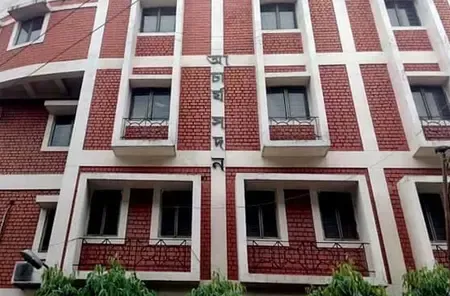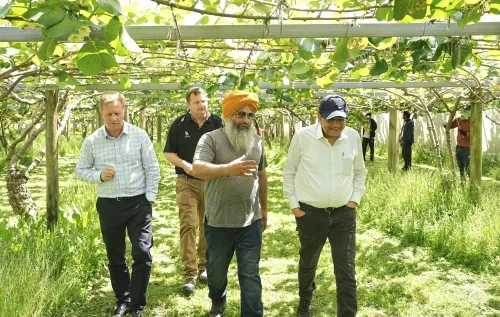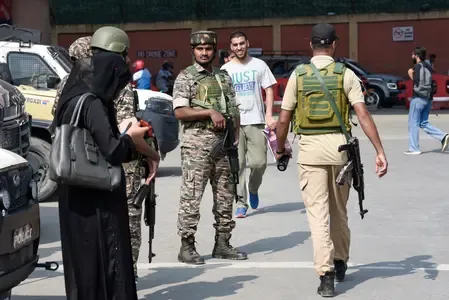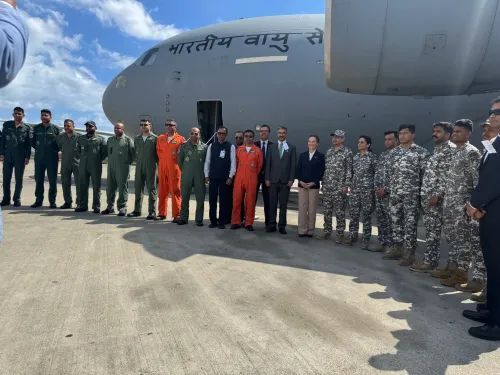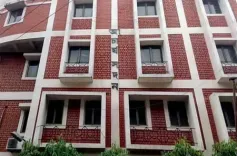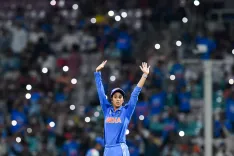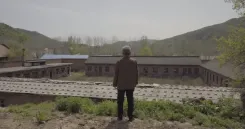UP Chief Minister Advocates for Reformation in Madrasa Education System, Emphasizes on Academic Integration
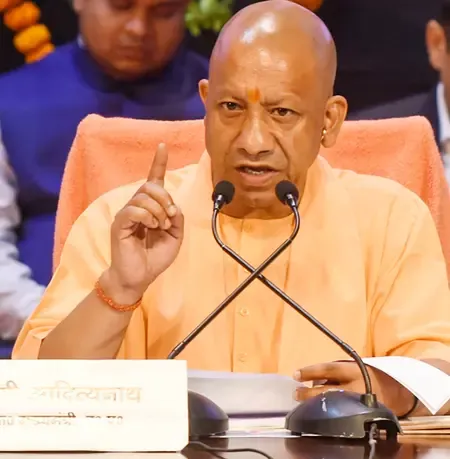
Synopsis
Key Takeaways
- Urgent reforms in Madrasa education system are needed.
- Integration of madrasa students into the mainstream education.
- Alignment with New Education Policy (NEP 2020).
- Need for transparency in teacher selection.
- Establishment of a high-level committee for recommendations.
Lucknow, April 25 (NationPress) Uttar Pradesh Chief Minister Yogi Adityanath has called for urgent 'reforms' in the Madrasa education framework, aiming to align it with contemporary educational standards. This initiative seeks to ensure that students are not excluded and are kept updated with the latest curriculum enhancements.
During a high-level meeting focused on reviewing the madrasa education model, the Chief Minister emphasized the importance of integrating madrasa students into the mainstream, expressing concerns regarding the system's current inefficiencies.
“We must ensure that madrasas do not become mere centers for religious education,” the Chief Minister instructed officials.
He highlighted the necessity of enhancing the madrasa education framework by introducing quality education that is also employment-oriented.
It is crucial to mainstream madrasas, ensuring equitable opportunities for all community segments to benefit from these reforms.
The Chief Minister addressed challenges arising from a recent Supreme Court verdict that deemed the higher education degrees (Kamil and Faazil) of the Uttar Pradesh Madrasa Board unconstitutional.
He further emphasized the need to synchronize madrasa curricula with the New Education Policy (NEP 2020) and to improve their operational and management structures.
In directing officials regarding the screening and selection of madrasa teachers, CM Yogi stated, “The selection process for new educators should be transparent and impartial. A review of the existing selection methods and an upgrade of qualification standards for both teachers and non-teaching staff is essential.”
He proposed the formation of a high-level committee tasked with making recommendations concerning madrasa teachers and students.
“A committee should be established under the leadership of the Minority Welfare Director, incorporating Special Secretaries from Basic Education, Secondary Education, Finance, Justice, and Minority Welfare departments. This committee will guarantee the effective operation of madrasas and propose measures for the security of teachers and the promising future of students,” he recommended.
The Chief Minister was previously informed by officials from the Minority Department about the current situation faced by the state’s madrasas and their associated challenges.
Currently, there are 13,329 recognized madrasas operating in Uttar Pradesh, enrolling a total of 1,235,400 students.
Among these, over 12,000 madrasas include 9,979 at the primary and upper primary levels (classes 1 to 8) and 3,350 at the secondary and higher secondary levels (classes 9 to 12). Of these, 561 madrasas receive state funding, catering to 231,806 students. The total workforce in government-aided madrasas consists of 9,889 teachers and 8,367 non-teaching staff.

